Communicating in Vanuatu could be challenging for even the most resolute linguist. As I have mentioned earlier there are an estimated 130 local languages found on the 60 plus inhabited islands here in the South Pacific. This is among the highest language diversity per capita in the world. There are three official languages that are recognized by the national government and documents, policies and news may be reported in Bislama, English or French. Bislama, however, is the dominating language that binds the country together; the literate to the illiterate, rural to the urban and the northern most islands to the southern most islands. Being unable to communicate in Bislama will render you unable to effectively communicate with Ni-Vanuatu peoples, especially in a village setting in which about 80% of the country lives. But what is Bislama? Where did the language come from?
"Bislama" is the Ni-Vanuatu version of a group of Melanesian Pidgin Languages which also includes "Tok Pidgin" in Papau New Guinea and "Pidgin" in the Solomon Islands. These pidgin languages arose as Europeans discovered valuable natural resources in these island countries starting in about the mid-1880's, especially sought after was sandalwood and that good old colonial gold..."labor." The Ni-Vanuatu peoples were moved around from island to island and had to work together with a group of islanders that didn't speak a word of their local tongue and a group of pale faced Europeans that certainly seemed to be running the show. This linguistic negotiation rendered "Bislama" which is a pidgin of English which a lot of Melanesian context and grammar. "The name of the language derives from the nineteenth-century word Beach-la-Mar, which itself derives from the French biche de mer 'sea cucumber'. (Crowly, Terry)." Beche-la-mer or Sea Cucumbers were also collected and dried by the French during this initial flurry of economic exploitation. (Photograph is Ben teaching a slope stability session in Malekula, the board reads " Tri= Helti Riva= Helti Rif" or Trees = Healthy Rivers= Healthy Reefs)
includes "Tok Pidgin" in Papau New Guinea and "Pidgin" in the Solomon Islands. These pidgin languages arose as Europeans discovered valuable natural resources in these island countries starting in about the mid-1880's, especially sought after was sandalwood and that good old colonial gold..."labor." The Ni-Vanuatu peoples were moved around from island to island and had to work together with a group of islanders that didn't speak a word of their local tongue and a group of pale faced Europeans that certainly seemed to be running the show. This linguistic negotiation rendered "Bislama" which is a pidgin of English which a lot of Melanesian context and grammar. "The name of the language derives from the nineteenth-century word Beach-la-Mar, which itself derives from the French biche de mer 'sea cucumber'. (Crowly, Terry)." Beche-la-mer or Sea Cucumbers were also collected and dried by the French during this initial flurry of economic exploitation. (Photograph is Ben teaching a slope stability session in Malekula, the board reads " Tri= Helti Riva= Helti Rif" or Trees = Healthy Rivers= Healthy Reefs)
I remember thinking that Bislama would be an extremely easy language to pick up and learn, like some children playing around with Pig Latin... well that isn't really the case. The accent can be bewildering, the tenses are utterly confusing and many words have several meanings. Fortunately the whole language is written "FONETIKELI" (or phonetically - Ben loves to point out how the word phonetically is not phonectical- ironic huh?) This means that there is no letter "C, Q, X or Z." Most common English verbs will be understood by attaching a "um, im or em." However there is no verb "to be." The word "stap" means "I am," "to stay, to live (in one place)" or a prefix that is attached to a verb to express the present tense. See where some confusion can come in. So technically you could have a sentence like this: " Mi stap stap." ( I am staying here.)
Even more interesting to learn is all of the Bislama names for trees, plants, birds, fish and all sorts of other environmental wonders. These words don't take the English cognate in most cases. Many of the Bislama language names for trees, birds and common invetebrates are taken from a local language in Ambae Island and many of them have the prefix "na." So for example some animals and plants are: namarae (eels), namaloa (incubator bird), natalae (giant clams), nawita (octopus), nabanga (banyan tree) or nambilak (Kingfisher bird). (Photograph: Jessica teaching a group of 16 men Reef Check on Gaua island, everything is in Bislama written materials, lectures and powerpoints).
sorts of other environmental wonders. These words don't take the English cognate in most cases. Many of the Bislama language names for trees, birds and common invetebrates are taken from a local language in Ambae Island and many of them have the prefix "na." So for example some animals and plants are: namarae (eels), namaloa (incubator bird), natalae (giant clams), nawita (octopus), nabanga (banyan tree) or nambilak (Kingfisher bird). (Photograph: Jessica teaching a group of 16 men Reef Check on Gaua island, everything is in Bislama written materials, lectures and powerpoints).
"Bislama" is the Ni-Vanuatu version of a group of Melanesian Pidgin Languages which also
 includes "Tok Pidgin" in Papau New Guinea and "Pidgin" in the Solomon Islands. These pidgin languages arose as Europeans discovered valuable natural resources in these island countries starting in about the mid-1880's, especially sought after was sandalwood and that good old colonial gold..."labor." The Ni-Vanuatu peoples were moved around from island to island and had to work together with a group of islanders that didn't speak a word of their local tongue and a group of pale faced Europeans that certainly seemed to be running the show. This linguistic negotiation rendered "Bislama" which is a pidgin of English which a lot of Melanesian context and grammar. "The name of the language derives from the nineteenth-century word Beach-la-Mar, which itself derives from the French biche de mer 'sea cucumber'. (Crowly, Terry)." Beche-la-mer or Sea Cucumbers were also collected and dried by the French during this initial flurry of economic exploitation. (Photograph is Ben teaching a slope stability session in Malekula, the board reads " Tri= Helti Riva= Helti Rif" or Trees = Healthy Rivers= Healthy Reefs)
includes "Tok Pidgin" in Papau New Guinea and "Pidgin" in the Solomon Islands. These pidgin languages arose as Europeans discovered valuable natural resources in these island countries starting in about the mid-1880's, especially sought after was sandalwood and that good old colonial gold..."labor." The Ni-Vanuatu peoples were moved around from island to island and had to work together with a group of islanders that didn't speak a word of their local tongue and a group of pale faced Europeans that certainly seemed to be running the show. This linguistic negotiation rendered "Bislama" which is a pidgin of English which a lot of Melanesian context and grammar. "The name of the language derives from the nineteenth-century word Beach-la-Mar, which itself derives from the French biche de mer 'sea cucumber'. (Crowly, Terry)." Beche-la-mer or Sea Cucumbers were also collected and dried by the French during this initial flurry of economic exploitation. (Photograph is Ben teaching a slope stability session in Malekula, the board reads " Tri= Helti Riva= Helti Rif" or Trees = Healthy Rivers= Healthy Reefs)I remember thinking that Bislama would be an extremely easy language to pick up and learn, like some children playing around with Pig Latin... well that isn't really the case. The accent can be bewildering, the tenses are utterly confusing and many words have several meanings. Fortunately the whole language is written "FONETIKELI" (or phonetically - Ben loves to point out how the word phonetically is not phonectical- ironic huh?) This means that there is no letter "C, Q, X or Z." Most common English verbs will be understood by attaching a "um, im or em." However there is no verb "to be." The word "stap" means "I am," "to stay, to live (in one place)" or a prefix that is attached to a verb to express the present tense. See where some confusion can come in. So technically you could have a sentence like this: " Mi stap stap." ( I am staying here.)
Even more interesting to learn is all of the Bislama names for trees, plants, birds, fish and all
 sorts of other environmental wonders. These words don't take the English cognate in most cases. Many of the Bislama language names for trees, birds and common invetebrates are taken from a local language in Ambae Island and many of them have the prefix "na." So for example some animals and plants are: namarae (eels), namaloa (incubator bird), natalae (giant clams), nawita (octopus), nabanga (banyan tree) or nambilak (Kingfisher bird). (Photograph: Jessica teaching a group of 16 men Reef Check on Gaua island, everything is in Bislama written materials, lectures and powerpoints).
sorts of other environmental wonders. These words don't take the English cognate in most cases. Many of the Bislama language names for trees, birds and common invetebrates are taken from a local language in Ambae Island and many of them have the prefix "na." So for example some animals and plants are: namarae (eels), namaloa (incubator bird), natalae (giant clams), nawita (octopus), nabanga (banyan tree) or nambilak (Kingfisher bird). (Photograph: Jessica teaching a group of 16 men Reef Check on Gaua island, everything is in Bislama written materials, lectures and powerpoints).After about 3 months of living here you can understand most everything being said (although slang is rampant here and everything can be metaphorical) and you are able to speak at a fluency that allows you to eat, sleep and go to the restroom without little embarrassment. After about 6 months in a rural area you are catching on to some slang and are able to without a doubt know when someone is speaking about you to someone else. You also may need to learn local language for basic expressions like "good morning." Unfortunately for all of you that have kept your language free of swears and vulgarities many of our "four letter words" are perfectly acceptable to use in Bislams. (ie.- "as" means your butt, "sitsit" or "sit" pronounced like the English cognate means "to defecate, or the noun poop") Swearing does certainly exist in Bislama, many of which may be direct cognates or creative and descriptive phrases that I dare not write on this blog.
There are a lot of fun slang terms or phrases that literally translated would be confusing, such as "Mi stap tekem truk blong Adam." This literally translated into " I am taking Adam's truck." but means " am going to walk (Adam and Eve and his truck....two legs.. well you get it right)." Another one involving trucks (and subsequently the fact that most water sources here are ice cold) is "truk blong wota i pas finis." This literally translates to "the water truck has already passed," but means "it is too stinking late or cold and I am not going to bath tonight." Well you guys get the idea.
There are a lot of fun slang terms or phrases that literally translated would be confusing, such as "Mi stap tekem truk blong Adam." This literally translated into " I am taking Adam's truck." but means " am going to walk (Adam and Eve and his truck....two legs.. well you get it right)." Another one involving trucks (and subsequently the fact that most water sources here are ice cold) is "truk blong wota i pas finis." This literally translates to "the water truck has already passed," but means "it is too stinking late or cold and I am not going to bath tonight." Well you guys get the idea.
So for some of you that are brave and like a challenge, this is a small story written in Bislama that you can try and translate. I will give the English translation in a future blog to come. This is a custom story from Malekula Island, although I have heard variations of this story from other islands as well:
From wanem flaeing fokis i no kaekae long dei? Wan dei olgeta animol long ae oli stap rao wetem ol animol long graon. Flaeing fokis i no join wetem olgeta animol long ae blong faet, hemi stap lukluk nomo. Rao ia i stap gogo, i finis mo afta ol animol blong ae oli kros wetem flaeing fokis mo oli sakem aot hem mo talem "yu no famili wetem mifala naoia!" Naoia flaeing fokis hemi shem mo fret mo hemi mas kaekae long kava blong naet nomo!
Look for the translation to this story in another post to come! The picture of the man holding "a bat" is actually a "flying fox" (hint hint) which is what the story above is about. Incidently the flying fox in Timothy's hand was our supper one night... taste great with coconut milk!
-Jessica

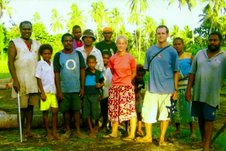
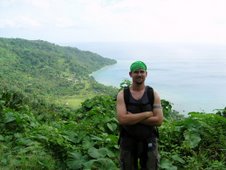
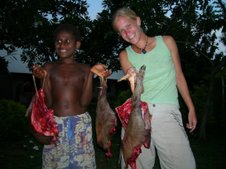
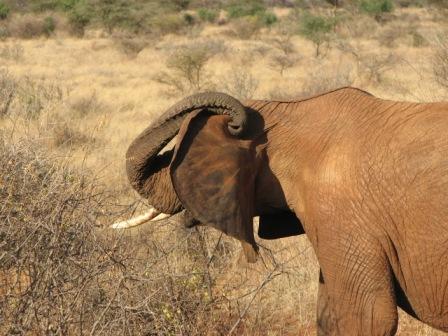
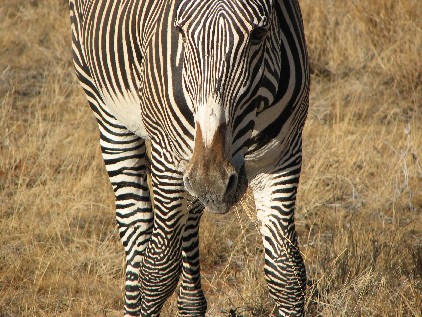
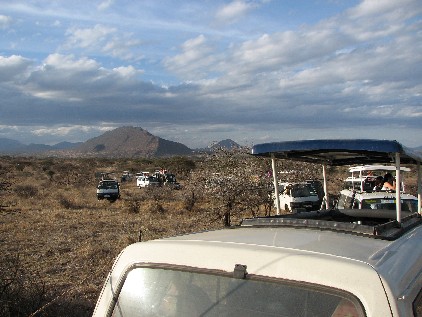
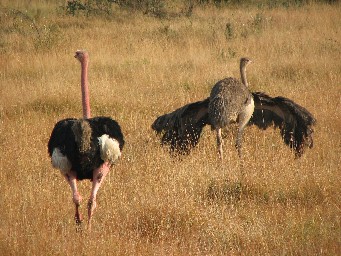

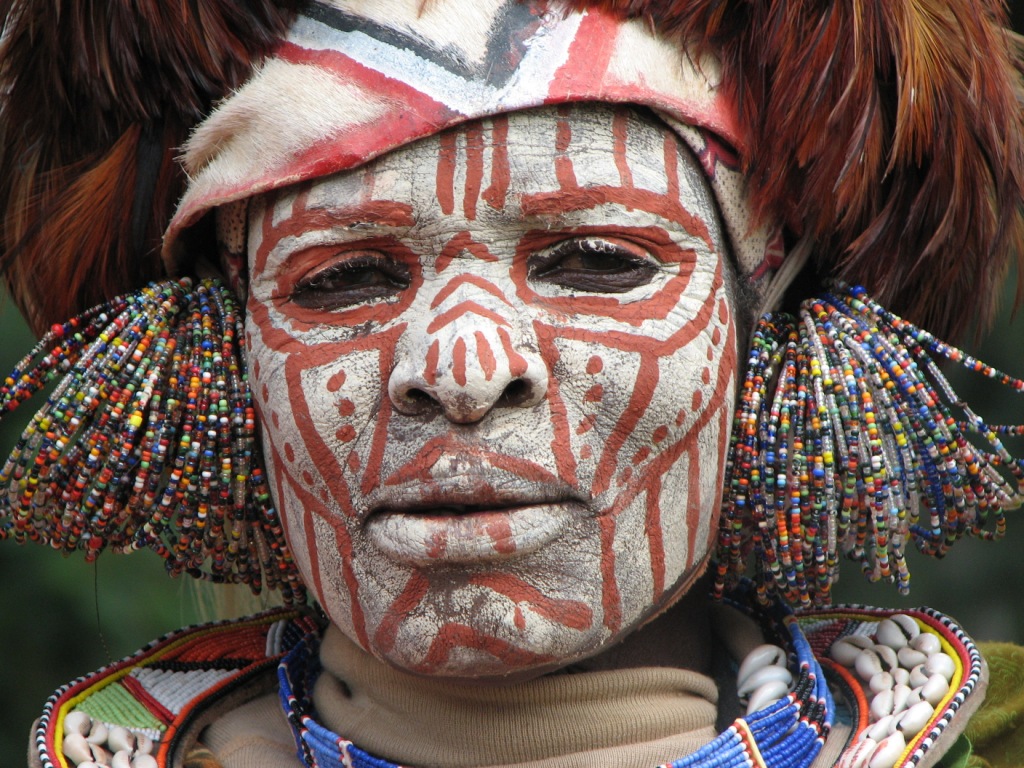
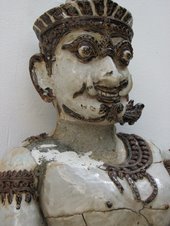
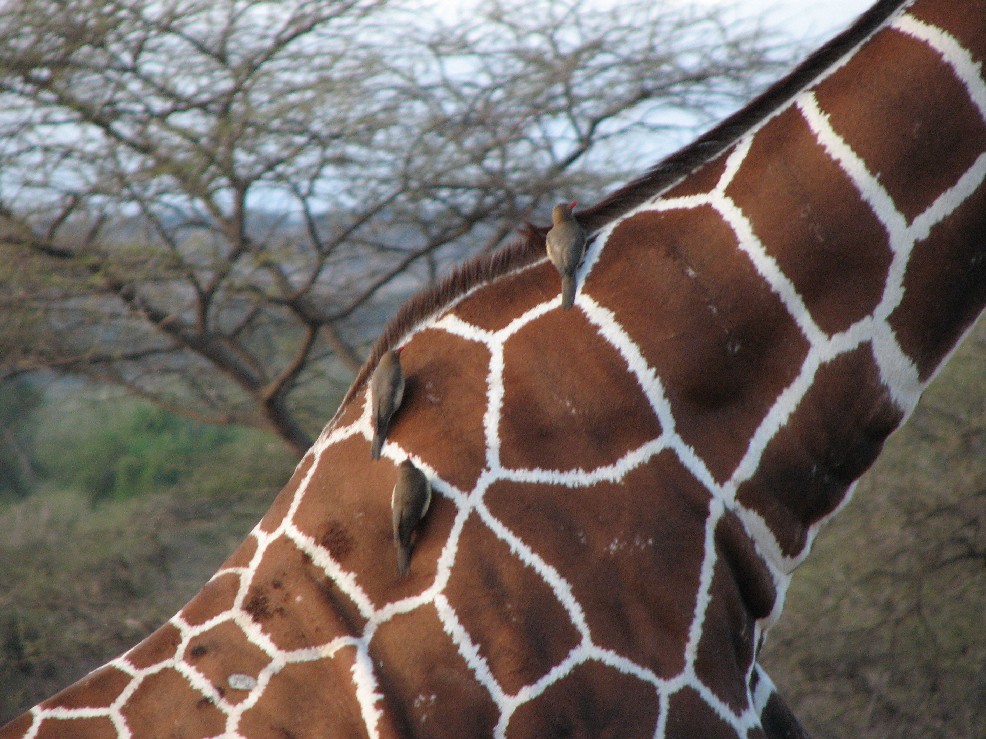
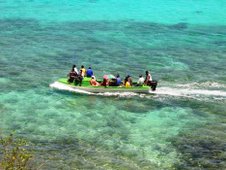
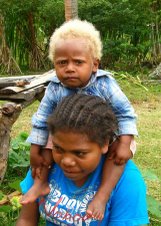
2 comments:
Here's a great Bislama resource you may be interested in:
Bislama wiki browser
I cannot find your current email address anywhere. Bruce
Post a Comment